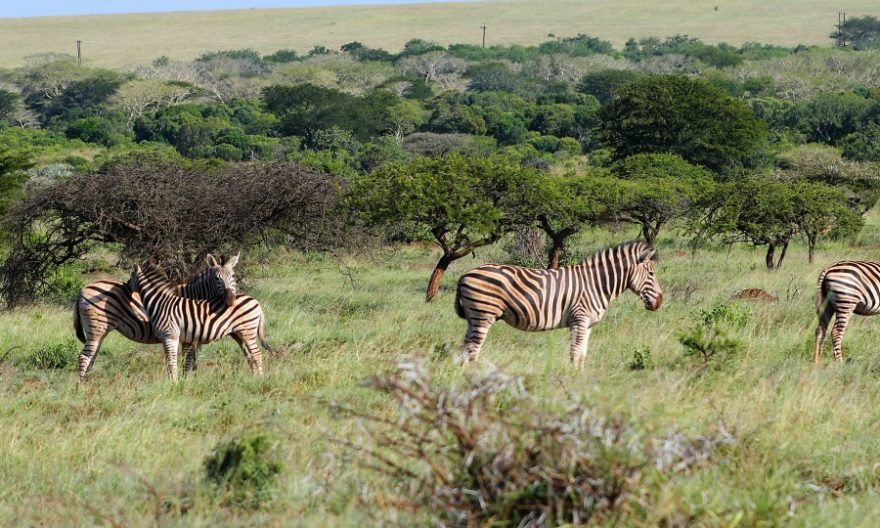
Following the recent UN Biodiversity conference, China has pledged to donate USD 233 million to support biodiversity conservation works in Africa. The donation is believed to be of paramount importance for the continent as it will have far-reaching benefits in the economic and social development of the continent.
According to the United Nations Environment Program (UNEP), despite ongoing efforts, biodiversity is deteriorating worldwide and this decline is projected to worsen with business-as-usual scenarios. The UN Biodiversity Conference will convene governments from around the world to agree to a new set of goals for nature over the next decade through the Convention on Biological Diversity post-2020 framework process. The framework sets out an ambitious plan to implement broad-based action to bring about a transformation in society’s relationship with biodiversity and to ensure that, by 2050, the shared vision of living in harmony with nature is fulfilled.
A report by African Development Bank (ADB) indicates that biodiversity loss is a global challenge; the world’s natural capital is under serious threat through a range of anthropogenic actions. Africa is host to remarkable biodiversity, with many endemic and endangered mammals and plants. Africa is also immensely rich with tropical forests, savannahs, montane grasslands, mangroves, deserts, wetlands.
Studies indicate that the continent contains an estimated one-fifth of all known species of mammals, birds, and plants. Biodiversity has always played a critical role in human development and well-being in Africa. By providing food, health, water supply and many other services, constitutes the engine for socio-economic development.
As a matter of fact, most African economies are largely dependent on their natural resources such as agricultural lands, forests, water resources, ecosystems and ecosystem services.
Despite the potential and great opportunities, biodiversity provides for African development, the continent is experiencing an unprecedented decline due to population growth, extensive agricultural practices, rapid urbanization, infrastructure development, illicit trafficking, among others.
It is estimated that the overexploitation and degradation of the biodiversity ecosystems will result in the loss of 50 percent of Africa’s bird and mammal species, and 20-30 percent of lake productivity by the end of the century, as well as the decline of wildlife and fisheries (UNEP-WCMC, 2016).
Furthermore, armed conflicts have caused significant damage to Africa’s biodiversity as experienced in many conflict-affected African countries, with enormous impact on protected areas due to military activities and population displacement. Examples include Cote d’Ivoire, the Democratic Republic of Congo, Angola, and the whole of the Great Lakes region which experienced a significant decline in their wildlife populations within national parks and reserves.
It is estimated that 70 per cent of Africa’s protected areas were touched by war between 1946 and 2010, with elephants, hippos, giraffes and other large mammals perishing as militants and hungry citizens hunted animals for meat and for marketable commodities such as ivory (Daskin and Pringle, 2018). Biodiversity loss also combines with many other environmental problems such as sea and land pollution by toxic waste, plastics and heavy metals which affect the quality of life.
Climate change is one of the major threats to biodiversity and ecosystem services in Africa. According to the Intergovernmental Panel on Climate Change (link is external) (IPCC, 2013), the changing climate is predicted to be one of the worst drivers for the loss of biodiversity over the next 50–100 years and will further exacerbate the effects of earlier threats on biodiversity. Considered as the latest emerging threat to biodiversity in Africa, climate change is a contributing cause in the decline of amphibian populations, due to drastic reductions in the volume of water bodies after persistent dry weather in combination with intensified human activities along the shorelines.
The loss of biodiversity in Africa alters the structures and functions of ecological systems, compromising efforts to achieve the Sustainable Development Goals (SDGs), particularly SDG 15 which aims to “sustainably manage forests, combat desertification, and halt and reverse land degradation and halt biodiversity loss”.
It is important to recognize the efforts made recently by many African countries to protect their natural assets by increasing awareness of their populations and communities on the values of biodiversity and its importance for socioeconomic development, building capacity, improving knowledge, creating protecting areas, conserving biodiversity hotspots and promoting nature-based solutions. However, given the amplitude of the challenges, African countries need to enhance and step up their efforts to reverse the current trends of biodiversity loss. To do so, they need to ensure that biodiversity becomes a top priority in their development goals.
The loss of biodiversity must become a serious matter of concern for every African government and stakeholder because protecting biodiversity is about sustaining Africa’s present development gains and safeguarding the development needs of future generations. However, protecting biodiversity requires all of us to rethink the way we consider biodiversity and make it an entire part of the development agenda. Despite challenges raised, it is not too late to reverse the biodiversity trends. Given its importance for development in most economies, there is a need for African governments and their development partners to include biodiversity in their development plans and cooperation programs.
Africa’s development and future are at risk if urgent action is not taken now to protect biodiversity, including the more than one million species of plants and animals which are threatened with extinction, the 40 percent of amphibian species, and the 33 percent of reef-forming corals which are endangered.
BY STAFF REPORTER
THE ETHIOPIAN HERALD OCTOBER 19/2021





